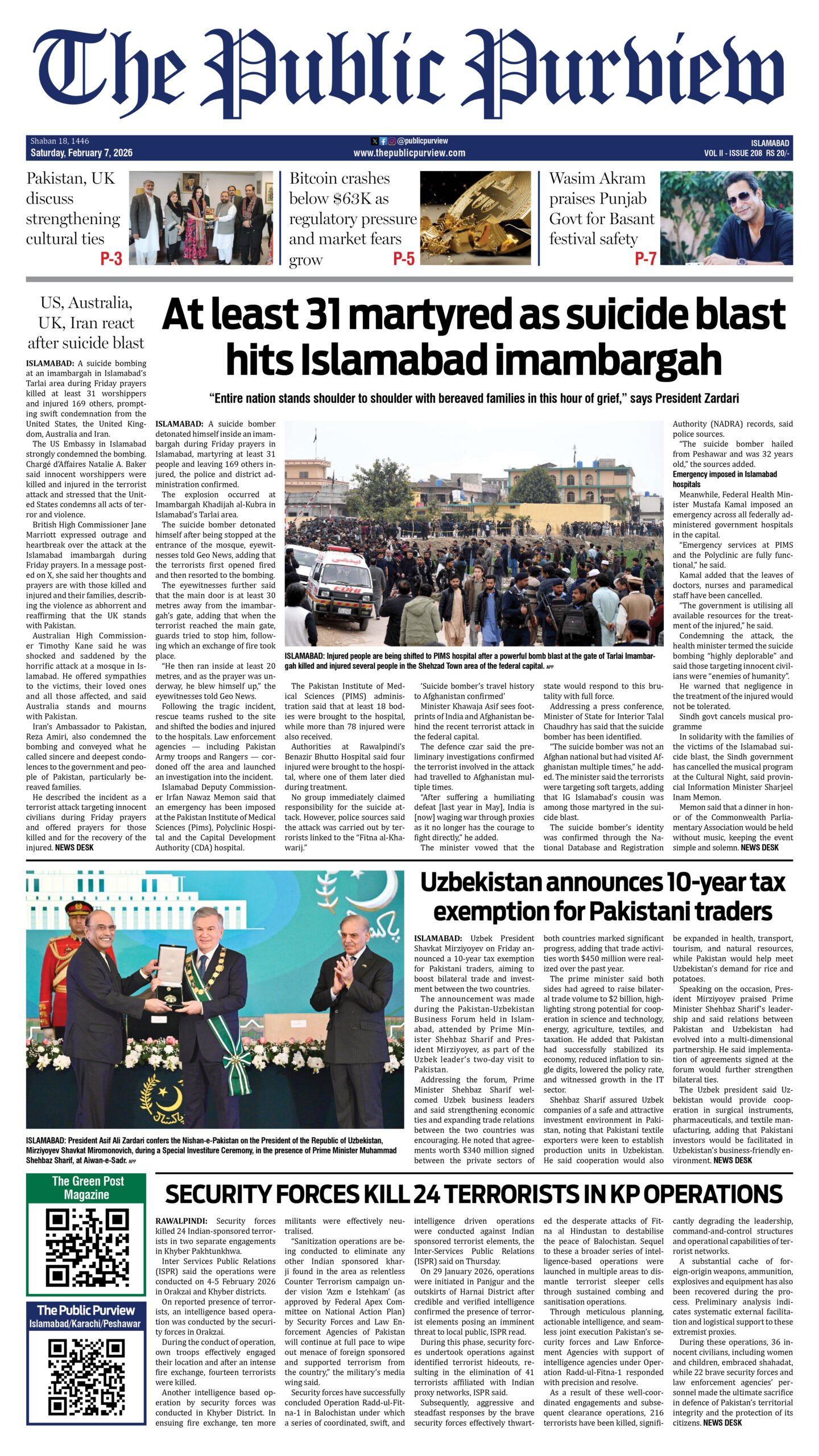Islamabad: The Women’s Parliamentary Caucus (WPC) today hosted a transformative conference under the theme “Poverty Has a Woman’s Face: Gender-Sensitive Legislature to Advance Gender Equality and End Poverty”, at the Parliament House, today. This event gathered distinguished parliamentarians, policymakers, and development leaders to discuss the urgent need for gender-responsive policymaking to address poverty, which disproportionately affects women in Pakistan.
Secretary WPC/MNA Dr. Shahida Rehmani, Member of the National Assembly and Secretary of the WPC. Dr. Shahida Rehmani emphasized the transformative power of gender-sensitive legislation, and stated “Legislation is not merely the crafting of laws; it is the architecture of justice. By enacting and implementing gender-sensitive policies, we can transform aspirations into achievements, ensuring that poverty no longer bears a woman’s face.”
The keynote address was delivered by Dr. Nafisa Shah, Member of the National Assembly, who provided an in-depth analysis of poverty’s multidimensional nature and the ways it disproportionately impacts women. She urged a shift from social protection initiatives to addressing social injustices and disparities. She emphasized the importance of grassroots-level data collection, gender-responsive budgeting, and intersectional approaches to map and tackle inequality in Pakistan. Special remarks were delivered by Mr. Jamshed Kazi, Country Representative of UN Women Pakistan, who reaffirmed UN Women’s commitment to advancing gender equality in Pakistan.
The conference also showcased the Women’s and Girls’ Manifesto, a strategic roadmap developed by the WPC, which outlines actionable priorities, including increased women’s representation in leadership roles, targeted economic support for women entrepreneurs, and gender-inclusive solutions to climate challenges.
Members of the National Assembly (MNAs) and Members of the Provincial Assemblies (MPAs) emphasized the need for legislative implementation, economic empowerment, and social reforms to advance women’s rights in Pakistan.
MNA Syeda Shehla Raza u highlighted critical issues such as equal pay, the establishment of daycare centers to support women’s development, and the protection of property rights for women. MNA Ms. Asia Naz Tanoli advocated for incorporating social and moral values, inheritance rights, dowry issues, and the importance of women’s respect into the national curriculum. MNA Ms. Sofia Saeed Shah proposed including the CNIC numbers of brides and grooms on marriage contracts (Nikahnama) to address the issue of child marriage effectively. Addressing property rights, MPAs highlighted the pivotal role of mothers in promoting gender equality. Participants noted that societal norms often pressure women to relinquish their property rights and suggested to enact legislation to nullify practices like stamp paper transfers and Hiba in favor of male relatives.
Ms. Ishrat Ashraf, MPA and Convener of the Punjab Women’s Parliamentary Caucus, emphasized the need for economic empowerment as a precursor to achieving broader human rights for women. She called for collaborative efforts among parliamentary caucuses and expressed gratitude to UN Women for their technical assistance. MPA Ms. Rahila Hameed Khan Durrani recommended allocating funds for women’s projects and proposed the establishment of committees at federal and provincial levels to collaborate effectively. MPA Tanzila Umi Habiba highlighted the Sindh Rural Support Organization (SRSO), which provides interest-free loans with a 90% repayment rate, and noted that 200,000 houses have been constructed and registered in women’s names under government initiatives. MPA Ms. Taqqadus Gilani emphasized the necessity of financial education and empowerment for women. She reiterated that women are simply seeking the rights already granted to them by Islam.
The event concluded with a collective commitment by all stakeholders to champion the principles of gender equality and to ensure the eradication of poverty through sustained, inclusive, and actionable policy measures.






 Today's E-Paper
Today's E-Paper